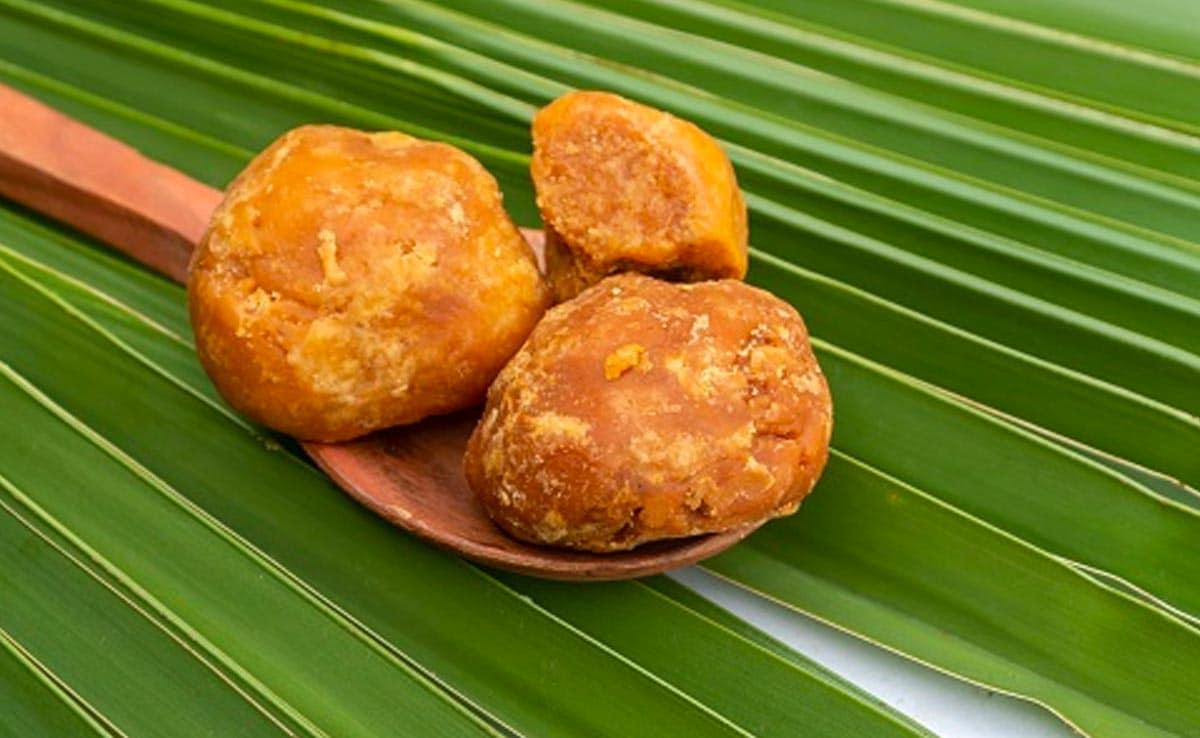
Should Diabetics Consume Jaggery?
Jaggery, commonly known as 'gur' in India, is a natural sweetener made from sugarcane juice or palm sap.
Unlike refined sugar, it retains some essential minerals like iron, potassium, and magnesium due to minimal processing.
While jaggery is considered healthier than white sugar because of its micronutrient content, it still has a high glycemic index and primarily consists of sucrose, which can cause spikes in blood sugar levels.
Diabetics should consume jaggery cautiously or avoid it altogether, as it can lead to similar blood sugar fluctuations as white sugar.
Read on as we discuss why diabetics should avoid jaggery.
10 Reasons why diabetics should avoid jaggery 1.
High glycemic index Jaggery has a high glycemic index, similar to refined sugar, meaning it rapidly increases blood sugar levels.
For diabetics, maintaining stable blood sugar is critical, and consuming high-GI foods like jaggery can lead to sudden spikes, making diabetes management difficult.
2.
High in sucrose Jaggery consists mainly of sucrose, a type of sugar that quickly breaks down into glucose in the bloodstream.
This makes it unsuitable for diabetics who must limit sugar intake to prevent hyperglycaemia and associated complications.
3.
Lack of blood sugar control Even though jaggery is less processed than white sugar, its impact on blood sugar is almost identical.
Including jaggery in the diet can interfere with efforts to manage blood sugar levels effectively, which is a primary goal for diabetics.
4.
Contributes to insulin resistance Regular consumption of jaggery can lead to high blood sugar over time, which may worsen insulin resistance—a condition where cells become less responsive to insulin.
This is particularly harmful for diabetics who already struggle with impaired insulin function.
5.
Hidden calories Jaggery is calorie-dense, which can contribute to weight gain if consumed frequently.
Being overweight or obese can further exacerbate diabetes, as excess weight is linked to reduced insulin sensitivity.
6.
Lack of significant nutritional benefits Though jaggery contains trace amounts of minerals like iron and magnesium, the quantities are too small to offer meaningful health benefits.
Diabetics can obtain these nutrients from healthier, low-GI foods without risking blood sugar spikes.
7.
Risk of postprandial hyperglycaemia Postprandial hyperglycaemia, or high blood sugar after meals, is a common concern for diabetics.
Consuming jaggery, even in small amounts, can trigger this condition, making it harder to achieve glycemic control.
8.
May trigger sugar cravings The sweet taste of jaggery can stimulate sugar cravings, leading to overeating or consuming other sugary foods.
For diabetics, controlling cravings is crucial to maintaining a balanced diet.
9.
Potential for overconsumption Jaggery is often perceived as a healthier alternative to sugar, which can lead to overconsumption.
However, its impact on blood sugar is similar, and excessive intake can worsen diabetes symptoms.
10.
Impact on long-term complications Consistently high blood sugar levels caused by jaggery consumption can increase the risk of long-term complications of diabetes, such as cardiovascular disease, kidney damage, and nerve problems.
Avoiding jaggery can help mitigate these risks.
Diabetics should opt for low-GI alternatives, such as stevia or erythritol, for sweetening foods without compromising blood sugar control.
Consulting a healthcare provider before including jaggery in a diabetic diet is advisable.
Disclaimer: This content including advice provides generic information only.
It is in no way a substitute for a qualified medical opinion.
Always consult a specialist or your own doctor for more information.
NDTV does not claim responsibility for this information.
.
Related Articles
politics
Kumaraswamy backs BJP, wants SIT to prove Siddaramaiah's bribery claims
November 15, 2024

Union Minister HD Kumaraswamy on Friday demanded a Special Investigation Team (SIT) probe into Chief Minister Siddaramaiah's claim that the BJP offered Rs 50 crore each to 50 Congress MLAs to topple his government in Karnataka.
Addressing reporters, Kumaraswamy criticised Siddaramaiah for making what he called "irresponsible statements.
read morepolitics
Former China minister expelled from party
November 15, 2024

The information contained in this website is for general information purposes only.
The information is provided by BhaskarLive.
read morepolitics
Jay Shah condemns PCB’s Champions Trophy tour in PoJK, seeks ICC action
November 15, 2024

The Board of Control for Cricket in India (BCCI) secretary Jay Shah has strongly condemned the Pakistan Cricket Board’s (PCB) decision to hold the Champions Trophy tour in Pakistan-occupied Jammu-Kashmir (PoJK) and urged ICC to take appropriate action in light of BCCI’s concerns over territorial integrity and political interference in sports, sources said.
PCB on Thursday announced on X that the Champions Trophy tour will start in Islamabad and include some places like Skardu, Murree, Hunza, and Muzaffarabad in the PoJK region.
read more